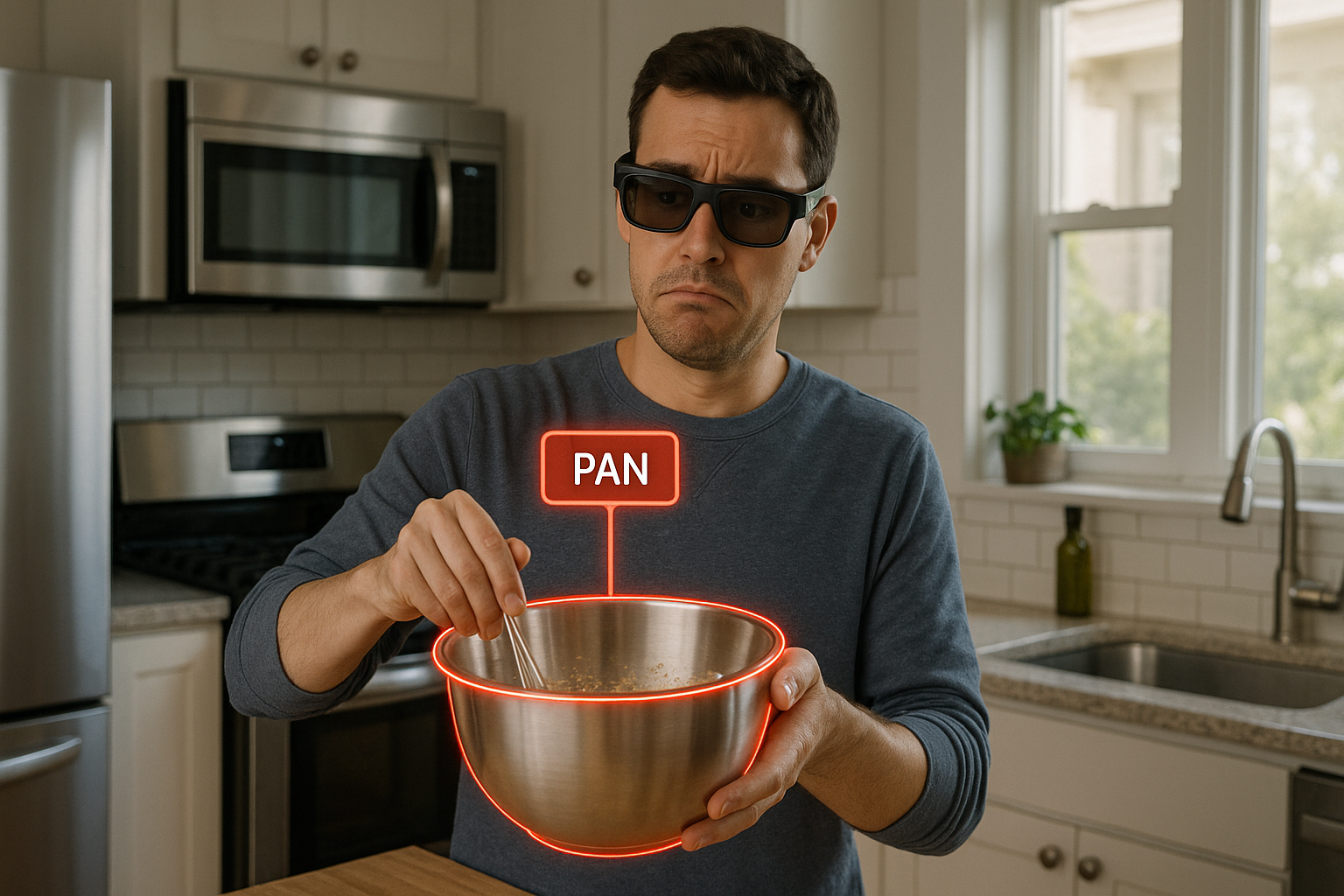Mark Zuckerberg's big tech demo moment turned into something closer to a tech embarrassment this week when his highly anticipated AR glasses failed to perform basic tasks during a live demonstration. The Meta CEO—who's staked his company's future on these kinds of immersive technologies—watched as his smart glasses confused a mixing bowl for a pan during what was supposed to be a straightforward cooking demo.
Look, we've all had kitchen disasters. But most of us don't have billions of dollars and thousands of engineers at our disposal.
For Meta, which has plowed north of $100 billion into its Reality Labs division, the public fumble couldn't have come at a worse time. The company has been riding high on AI enthusiasm (its stock is up over 50% this year), but moments like these force a reckoning with what I call the "expectation-reality gap"—that yawning chasm between what tech companies promise and what their products can actually deliver.
Having covered Silicon Valley product launches for years, I've noticed they follow a predictable pattern. First comes the breathless hype, followed by the carefully choreographed demo, ending with vague promises about future availability. When that middle step goes sideways... well, investors start asking uncomfortable questions.
"The 'Demo Day Delusion' strikes again," one venture capitalist texted me after watching the presentation. "These companies keep forgetting that real-world applications are infinitely messier than boardroom simulations."
The failure is particularly telling because it happened in a kitchen—perhaps the most analog, tactile environment in most homes. It's one thing for AI to write poetry or generate images. It's quite another to recognize the difference between stirring and folding when actual humans are moving around with actual utensils in variable lighting conditions.
This isn't just a Meta problem. Remember IBM's Watson? After its Jeopardy triumph, everyone thought it would revolutionize healthcare. Fast forward a few years, and IBM ended up selling Watson Health assets at what analysts described as a "substantial discount." The pattern keeps repeating.
That said, Zuckerberg deserves some credit for his willingness to fail publicly. Tech demos are inherently risky. (Steve Jobs once had WiFi fail during an iPhone presentation; Bill Gates famously encountered the Blue Screen of Death while showcasing Windows 98.) The difference is that those were connectivity issues, not fundamental questions about whether the technology worked at all.
The timing is particularly awkward as Meta attempts to navigate its identity. First it was all-in on the metaverse, now it's pivoted hard toward AI, leaving investors wondering what exactly they're betting on. Is Meta a social media company with an expensive side hobby? An AR/VR pioneer? An AI powerhouse? The cooking demo wasn't just a technical failure—it was a narrative one.
For Meta shareholders (I should note I don't own stock in the company), this doesn't necessarily mean it's time to sell. But it might be worth recalibrating timelines. The revolution might still be coming—just not on the schedule that's been implied in recent earnings calls.
What's the takeaway here? Perhaps that we should be more skeptical of companies making spectacular claims about AI capabilities that outpace actual results. The most successful tech firms historically haven't been those making the boldest promises, but rather those consistently delivering practical value that slightly exceeds expectations.
In the meantime, if you need cooking instructions, maybe stick with a cookbook. The technology might not be as exciting, but at least it knows the difference between a bowl and a pan.
